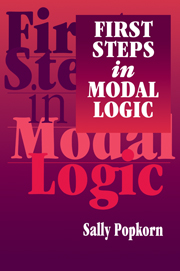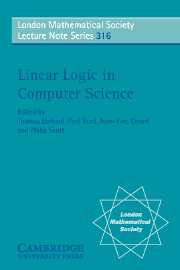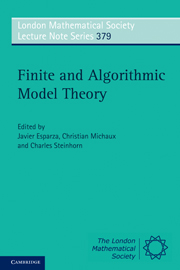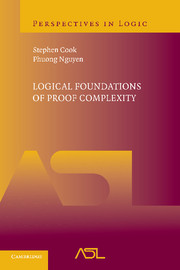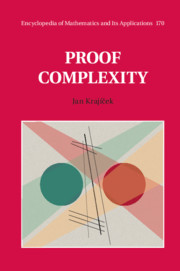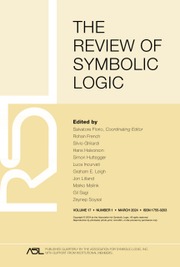First Steps in Modal Logic
This is a graduate-level text for a first course in propositional modal logic. It is written from the semantical point of view rather than the more usual proof theoretic approach, and the book covers all basic material including the propositional languages, the semantics and correspondence results, and proof systems and completeness results--as well as some topics not usually covered in a modal logic course, such as bisimulation. Important features of the book are the many exercises and extensive set of solutions that are included.
Reviews & endorsements
"This text should appeal to anyone with an interest in model logic...an attractive choice for self-study." J.M. Plotkin, Mathematical Reviews
"...offers a distinctive viewpoint and is easy to learn from." D.V. Feldman, Choice
Product details
January 2008Paperback
9780521057936
332 pages
228 × 153 × 20 mm
0.542kg
Available
Table of Contents
- Introduction
- Acknowledgements
- Part I. Preliminaries:
- 1. Survey of propositional logic
- 2. The modal language
- Part II. Transition Structures and Semantics:
- 3. Labelled transition structures
- 4. Valuation and satisfaction
- 5. Correspondence theory
- 6. The general confluence result
- Part III. Proof Theory and Completeness:
- 7. Some consequence relations
- 8. Standard formal systems
- 9. The general completeness result
- 10. Kripke-completeness
- Part IV. Model Constructions:
- 11. Bismulations
- 12. Filtrations
- 13. The finite model property
- Part V. More Advanced Material:
- 14. SLL logic
- 15. Löb logic
- 16. Canonicity without the fmp
- 17. Transition structures aren't enough
- Part VI. Two Appendices: Bibliography.

